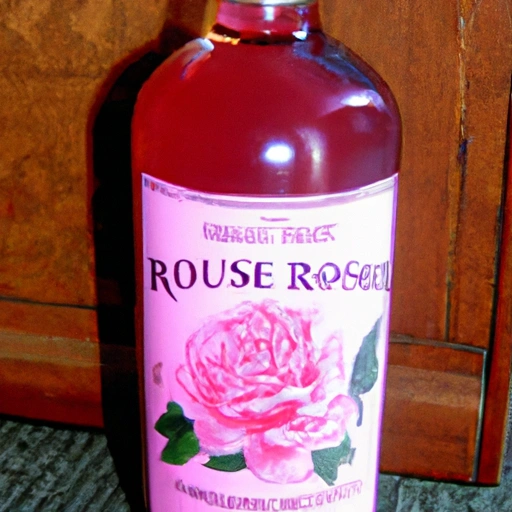Rose Syrup
Description

Rose syrup is a viscous, sweet liquid made from rose water, sugar, and typically a touch of food coloring to give it a distinctive pink hue. It possesses a rich, floral aroma and is used to impart a rose fragrance and a hint of sweetness to various dishes and beverages. In recipes, rose syrup can be measured using various units, such as milliliters (ml) and grams (g) in the metric system, fluid ounces (fl oz), teaspoons (tsp), tablespoons (tbsp), and cups (c) in the American customary system, and similar units in the imperial system used in Europe.
Common uses
Rose syrup is commonly used as a flavoring agent in sweets, desserts, beverages, and sometimes even savory dishes. It is especially popular in Middle Eastern, North African, and South Asian cuisines where floral flavors are appreciated and integrated into food traditions.
Nutritional value
Calories
Calories in rose syrup can vary by brand, but it generally contains about 310 kcal per 100 ml.
Protein
Protein content in rose syrup is negligible, as it is mainly composed of sugars.
Fat
Rose syrup contains no fat, making it a fat-free option for sweetening.
Carbohydrates
The majority of rose syrup's composition is carbohydrates, primarily in the form of sugars, with about 76 g per 100 ml.
Vitamins
While not a significant source of vitamins, some brands of rose syrup may contain small amounts of vitamin C due to the natural rose content.
Minerals
Minerals are not a major component of rose syrup, but trace amounts of minerals from the water used in its production may be present.
Health benefits
While rose syrup is high in sugar and should be consumed in moderation, rose water, its primary ingredient, has been associated with some health benefits such as potential digestive and anti-inflammatory properties. However, these benefits are more closely linked to plain rose water rather than the sweetened syrup.
Potential risks
Due to its high sugar content, overconsumption of rose syrup may lead to weight gain and an increased risk of dental cavities, as well as contribute to more serious health issues such as insulin resistance and type 2 diabetes. People with sugar sensitivities or diabetes should use it cautiously.
Common recipes
Rose syrup is a key ingredient in recipes like Middle Eastern desserts such as baklava and Turkish delight, Indian sweets like gulab jamun and falooda, as well as in various cocktails and mocktails.
Cooking methods
It is generally used as a flavor enhancer and is drizzled over or mixed into dishes rather than being subjected to high-heat cooking methods.
Pairing with other ingredients
Rose syrup pairs well with dairy products like milk and cream, fruits like lychee and lemon, and spices such as cardamom and saffron.
Summary
Rose syrup is a versatile ingredient that can add a floral sweetness to a variety of dishes and drinks. While enjoyed globally, it should be consumed in moderation due to its sugar content. Its historical roots and culturally diverse applications make it a fascinating addition to the world of culinary ingredients.